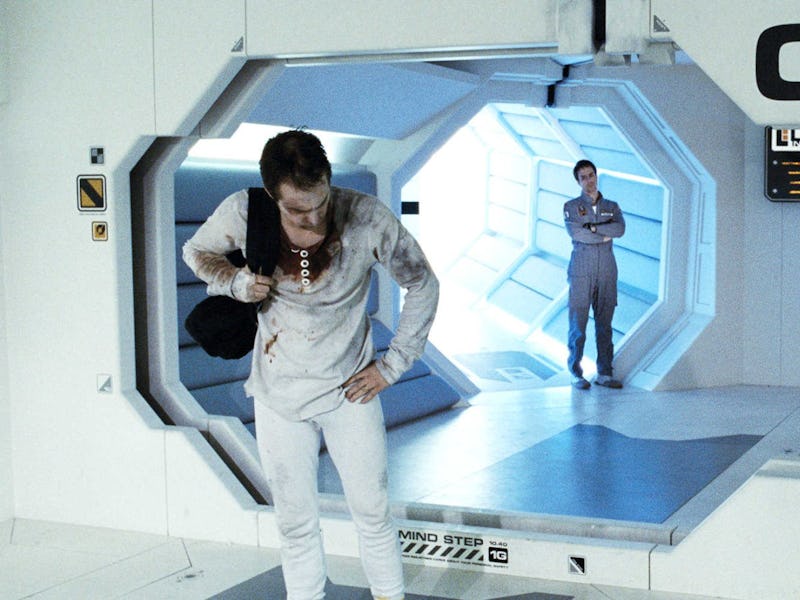Moon Offered Bleak Existential Terror And A Little Spark Of Hope
Learning that your whole life is a lie while you’re trapped in space is a tough combo.

Space and its vast, existential dread-inducing endlessness has a particular ability to make even the sturdiest viewers quake. Much of what we fear, and what allows certain horror films to buzz with terror, is our fear of the unknown and the worry that what we believed to be true is false. It’s why space makes such a strong setting for stories meant to bury viewers in their thoughts as they contemplate the order — or lack thereof — of the universe, how small and seemingly insignificant we are in the grand scheme of things, and the loneliness that has the potential to engulf us.
Moon, directed by Duncan Jones, manages to succeed in scaring viewers with both forms of the unknown. We’re given the chilly breadth of the darkness above, while simultaneously experiencing the thoughts of our grossly misled main character, who suddenly realizes his function isn’t what he believed.
Sam Bell (Sam Rockwell) has three weeks left of his three-year contract at a moon-based manufacturing facility. His employer, Lunar Industries, only requires one human to maintain operations, and having been alone with his computer assistant all this time, he’s ready to return to Earth. However, following a series of hallucinations bad enough to make him crash his lunar rover, he begins to realize that his reality isn’t what he’s been told.
This is thanks to the arrival of a man with the same name and occupation who looks and sounds just like him. He’s a clone, one of many used by Lunar Industries to cut costs. Both the older Sam and his prematurely awakened replacement realize that Lunar has been running this scam for years. Cut off from Earth, and with implanted memories of a wife and 15-year-old daughter he’s never met, Sam and all the other clones of a human Sam who departed long ago have been left to work until they break down and get replaced by the next copy in line.
Sam Rockwell delivers a powerful, layered performance as a man grappling with an unthinkable fate. His loneliness is compounded not by the silence of his stellar workplace or his lack of company and contact. Rather, the isolation comes from the realization that he’s just a cog in a machine, disposable to the point where his copies don’t even see him as someone with agency sharing their predicament. He’s just a lesser model that needs to be recycled. In the borderless landscape of space, loneliness is to be expected. What makes Moon achieve such clinical horrors is that Sam isn’t just lonely, but completely alone, left to decay as an expendable piece of faulty machinery.
It’s tough out there for Sams, be they Bells or Rockwells.
Well, there is GERTY, Sam’s AI companion who cheerily swerves around the plot twists that predecessors like HAL 9000 have led viewers to expect. In 2009, AI wasn’t such an inevitable part of the future that giant corporations envisioned, and GERTY is accorded a benign contribution to Sam’s plight. Still, Moon captured that foreboding sense of technology overtaking humans. For every positive advancement, there’s one that leads us down a myopic and cynical path.
Perhaps that’s why the film still manages to achieve a semblance of hope, finite as it may be. Instead of giving into the doom and gloom of corporate power, Moon hones in on the human element that spurs all of us, even sacrificial clones, on. Sam and his clone come to an agreement that gives them a chance to survive. There’s a sacrifice and a renewal of hope, and we learn in the end that it wasn’t in vain.
The fact that Jones makes all of this so engaging is impressive, especially considering it was his first feature. Moon succeeds for many reasons, chief among them the devastating blows Rockwell lands with his two-hander performance. But its greatest tool is how it weaponizes the sheer unknowability of space, and threads that anxiety with a story infused with human error. Moon is so frightening, so powerful in its brief glimpse of hope at the end, because it understands both the horror beyond our atmosphere, and the existence we share with those on the ground.
Moon leaves HBO Max on March 31.